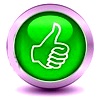A wiki is a website designed for collaborative editing, letting many people create, update, and organize content directly in a web browser.
They emphasize simplicity and openness — pages can be created or modified without special technical skills, and most maintain an edit history so revisions can be reviewed or reverted.
Key features
- **Collaborative editing:** Multiple people can edit the same pages, occasionally concurrently.
- **Edit history:** All edits are stored with timestamps and the author’s name or IP.
- **Interlinking:** Links between pages are simple to create, helping build connected content.
- **Lightweight markup:** Simple markup languages (such as WikiText or Markdown) are used to format pages.
- **Permission settings:** Wikis may allow public editing or restrict changes to registered or authorized users.
- **Discussion pages:** Talk or discussion pages let contributors debate edits and organization.
Common uses
- Community knowledge bases such as Wikipedia
- Internal documentation and company knowledge bases
- Cooperative writing and shared notes
- Educational and classroom projects
Pros
- **Fast collaboration:** Contributors can rapidly create and improve content.
- **Openness:** Edit histories and talk pages reveal how content decisions were made.
- **Expandable:** Wikis can grow naturally as contributors add new topics.
Cons
- **Vandalism and false information:** Public editing can lead to vandalism or incorrect information.
- **Inconsistent quality:** Entries may vary in accuracy, style, and completeness.
- **Organizational issues:** Lack of structure or rules can lead to disorganization and conflicts.
Example
- **Wikipedia** — the best-known wiki, run by the Wikimedia Foundation and built by volunteer contributors worldwide.






















